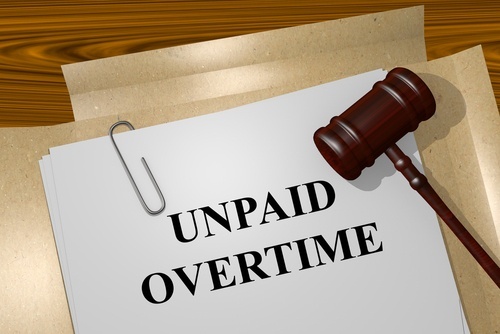
How to Report Unpaid Wages and Get Compensation?
May 25, 2021Your labor is the most critical asset of any company. It’s the time and effort you exert on your job that keeps things running. Federal law and individual state laws declare that all employees of all capacities need to be paid the correct amount for their work. If your employer violates these laws and regulations by being you incorrectly, it’s called ‘wage theft’.
Wage theft occurs in many ways. Some instances include, but are not limited to:
- Failure to meet minimum wage requirements
- Intentional miscategorization of employees’ salary brackets
- Failure to pay overtime wages
- Failure to pay commissions
- Failure to pay entirely for all the hours worked
Surveys have revealed that wage theft is a common occurrence, especially for low-income and immigrant workers. Many workers are being paid less than the minimum wages, losing thousands of dollars annually because of wage violations. If you think you’re a victim of such instances, what can you do if your employer pays incorrectly?
Table of Contents
Cover your Bases
Information is key. If you can, try to read up on labor laws and see if your employer is adhering to these appropriately. The Fair Labor Standards Act (FLSA) requires a federal minimum wage of $7.25 per hour. Any amount below this is considered withholding wages, and even if the withheld amount may not be much, it can add up to thousands if it occurs constantly. The FLSA also requires that employees exceeding the 40-hours per week be compensated with overtime pay.
The burden is placed on employees to enforce their labor protections and come forward in any violations. The employee is expected to come up with evidence to prove any wage theft claims against their employer. Hence, it is imperative to check protective legislation in place and cross-reference them with any records. Make sure you have access to work logs, previous salary checks, or money transfers. These count as significant evidence for your claims.

Consult an Employment Lawyer
Employment lawyers are equipped to handle clients dealing with workplace violations. They confirm which federal or state laws your employer may be violating but will discuss the different options and their advantages and disadvantages that you can take depending on the situation. Suing the employer is one option, but not everything needs to amount to that. In any case, an employment lawyer will represent you in whatever course of action you agree is best.
Report the Labor Law Violation
You, as an employee, have the right to complain about your agency. If you feel conflicted about filing a complaint, reporting labor law violations can be done by anyone, even third parties that don’t work for the company. Wage and hour violations may be complained to the Wage and Hour Division (WHD) of the Department of Labor via mail or in person. Make sure you can provide the following details:
- Your name, address, and contact information
- Employer’s name, address, contact information, and type of business
- Your job title and its description
- Payment information (the amount being paid, the method of payment, and schedule of payments)
- A detailed description of the violations (dates, names, etc.)
The WHD will issue an investigation upon review of the complaint to help you recover your unpaid wages. They will need to keep in contact with you for additional information, so keep in touch. You don’t need to worry about your employer finding out and retaliating because the investigation will keep the names of employees filing complaints confidential.
Takeaway
It may come as surprising that despite the high number of wage violations, the corresponding number of reported cases is significantly less. This is because employees fear the retaliation that the employers or the company might do. The victims have the burden of proving their case, as well as bearing the risks involved. Since the most affected people are low-income workers living from paycheck to paycheck, the process may not seem worth it.
However, remember that it comes down to getting as much emotional and professional help as you can get from the best employment lawyers. The process is there to help you secure a safer and fairer work environment for you and your colleagues in the long run.












